One of the great mysteries in the history of game design is how a wildly successful and critically-acclaimed series like Nintendo's The Legend of Zelda - a number of entries in which are regarded as the best games of all time - hasn't more frequently been imitated by other developers. The industry has held a long pattern of "follow the leader" behavior: the creation of trendsetting games that would go on to influence multiple pretenders, either shallowly attempting to cash-in on what was presently the hottest thing, or so inspired by that game's new ideas and their untapped potential that they're motivated to explore those channels further for potentially even better experiences. It's how the industry has gone from strength to strength, in a manner similar to how technology itself has evolved: it takes one genius to invent something new, and another to find an application for that same invention that no-one had ever thought of before.
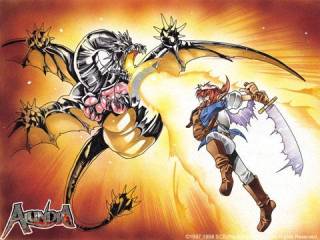
Yet The Legend of Zelda doesn't quite have the populous progeny of other pioneering contemporaries like Doom, Super Mario Bros., Dragon Warrior/Quest or Metroid, and besides its own numerous sequels has only spawned a small group of mostly-forgotten clones at the time, like Ancient's Beyond Oasis ("the Genesis Zelda" - Nextech's Crusader of Centy could also apply to that label) and Hudson's Neutopia ("the TurboGrafx-16 Zelda"), as well as a handful of modern AAA games that have skewed closely to the Zelda blueprint, such as Clover Studio's Okami, Vigil Games's Darksiders, FromSoftware's 3D Dot Game Heroes and Ubisoft's Beyond Good & Evil. (Credit to @mooseymcman for some reminders there.)
There's a few reasons for why this is, but chief among those is the idea that the Zelda model is fairly distinct and rigidly defined and thus difficult to effectively deviate or evolve from, in part due to the industry's (correct) perception of Zelda's creator, Shigeru Miyamoto, as an inimitable titan of game design. Developers don't want to mess with the formula because they believe it to be perfect as-is, which might also go some way towards explaining why the series has been fairly stagnant since its leap to 3D with Ocarina of Time. New Zelda games superficially differentiate themselves either by adopting distinctive graphical styles and presentations - say, the obtuse weirdness of Majora's Mask or the cel-shaded cuteness of The Wind Waker - or they include additional modes and features that either enhance or detract from the game's core, which has remained more or less unchanged since the original The Legend of Zelda: explore dungeons, find items which open new paths, fight bosses for some plot-important McGuffins, and repeat until you come face to face with a giant pig man. When a game series is so devoted to its own rhythm, it's hard to imitate it without doing so wholesale and inviting criticism for a cynical lack of originality. This strikes me as the most likely reason why "Zelda-like" imitators are low on the ground.
The handful that do succeed, though, have done so because they recognize the Legend of Zelda series as a combination of disparate elements working in harmony. You can take a list of Zelda norms - the dungeons, the items, the exploration, the puzzles and the room-filling bosses that require as much ingenuity to find their weak spots as they take skill to defeat them - and base a game around any one or more of those, rather than the entire list. The best Zelda-likes are those that pick and choose what they love most about Nintendo's franchise and build their own take focusing on those preferred conventions. This process, which I've dubbed "Zeldistillation" because I'm a terrible human being who thrives on puns and the pain they cause to others, is the key to making a good Zelda-like without ripping off the model completely - which, as well as being unoriginal, I would imagine is also exceptionally difficult to pull off to the same degree of finesse with a far smaller budget.
The following are five Indie games which feel like Zelda to some degree, but have wisely chosen to put their limited eggs in only a handful of the available baskets; in other words, they present comparatively smaller games with more emphasis placed on fewer facets common to the Zelda series, or on certain characteristics from specific Zelda games.
Ittle Dew
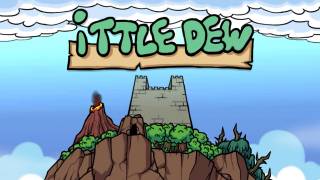
Ittle Dew, from Swedish Indie developers Ludosity Interactive, perhaps best exemplifies what I mean by Zeldistillation. The game is unmistakably Zelda in appearance: the protagonist wears green, is followed by a helpful if irritating tiny flying companion that delivers advice and direction, and the game is presented as a top-down world filled with dungeons, treasures and puzzles to solve. It's the latter that is of most import here: Ittle Dew is almost entirely focused on Zelda-style block-pushing, button-pressing and item-using puzzles. Combat takes more of a backseat, as does any elaborate character progression and much in the way of NPCs and side-quests, and it seems evident that the developers wanted to build a game around Zelda's dungeons and puzzles without necessarily investing too much in everything around them.
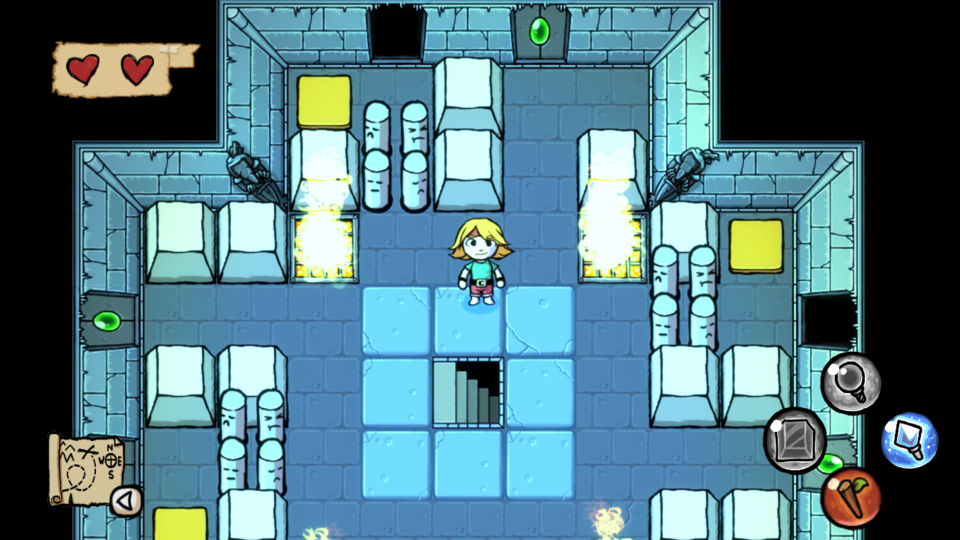
With this, Ittle Dew is free to indulge in its most favored element of the Zelda series via a series of puzzle rooms, poking gentle meta fun at the long-running series and its own similarity to it, and concludes after a brisk three or four hours of playtime. It's a perfect example of how a smaller studio can produce a smaller Zelda game without sacrificing too much in the way of quality: a laser-like focus on what matters most, or at least what the developers believe matters most.
The Binding of Isaac
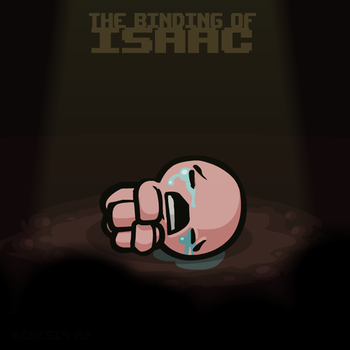
The wildly popular "roguelite" (which is another "-like" genre for another day; or a previous day if we're being technical) The Binding of Isaac by Edmund McMillen and Florian Himsl is another great example of a Zeldistillation: in this case, focusing more on the enemies and traps of Zelda's dungeon exploration rather than elaborate puzzles, somewhat conversely to Ittle Dew.
Isaac wanders through a series of procedurally generated dungeons and is often entirely at the whim of a fickle "random number deity" who wishes him harm and happiness in seemingly equal measure: items and their placement are randomized each time, and the player often needs to take the plunge and grab a new trinket before they're able to recognize which are beneficial and which are detrimental to their survival chances. This ties into the game's plot too, of course: Isaac cannot trust the mother who wants to kill him, the God that wants to punish him or the Devil that wants to deceive him. Any one of those might be responsible for the hellscape he is lost in, and the game pulls very few punches in how his tragic tale is presented depending on the player's route through the game.
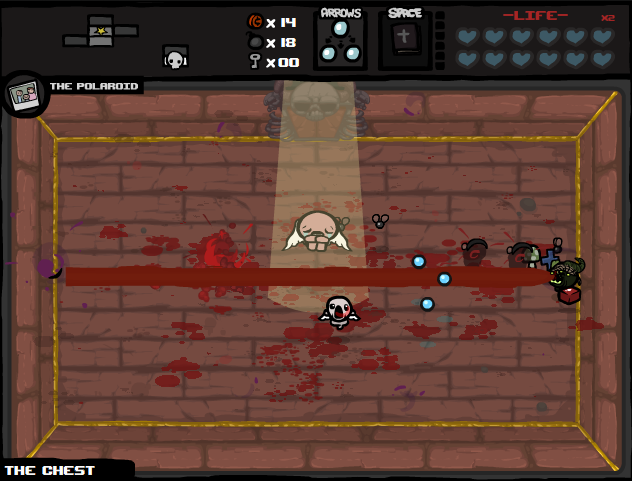
To the extent that it saw an enhanced remake, the game has done very well for its designers, perhaps even eclipsing the similarly acclaimed Super Meat Boy which McMillen created along with programmer Tommy Refenes. The Zelda comparison might only be skin-deep - the distinctive top-down view, with multiple single-screens linked in grid-like mazes, and a plethora of spikes, pits and other obstacles as well as an array of enemies that each require slightly differing strategies - but there's no telling how much that nostalgia added to what is otherwise an exceptional fast and frantic dual-stick shooter with a certain amount of luck governing each playthrough behind the scenes.
Super Chibi Knight
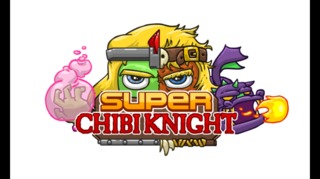
Super Chibi Knight is developed by PestoForce, though with the exception of certain contributions like the music and testing, it's the product of two people: Nick Pasto, and his (then) eight-year-old daughter Bella. Reminiscent of the 2011 browser adventure game Sissy's Magical Ponycorn Adventure from Untold Entertainment, most of the creative decisions for Super Chibi Knight were handed to the younger Bella to formulate, with her father creating the game's mechanics and graphics based on her suggestions. Bella also voices the titular Super Chibi Knight: a heroic young girl who sets off to save her kingdom of Oukoku from the evil sorcerer General Tso and the destructive demon lord Monocchio. Like most games from the Armor Games/Newgrounds stable - Tom Fulp and various characters created by The Behemoth, the studio he co-founded, make a prominent cameo - the game is Flash-based and fairly rudimentary and short, neither of which is necessarily meant as a pejorative.
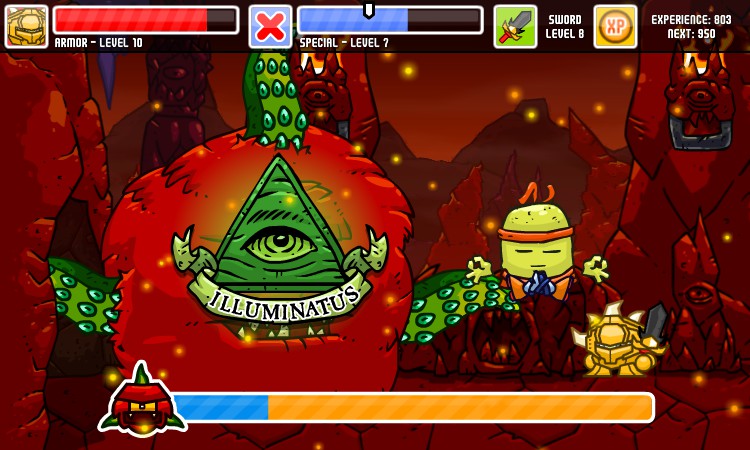
The player moves across a world map fighting random battles with monster groups and exploring dungeons via a 2D side-scrolling perspective, using items and abilities they've acquired elsewhere to facilitate progress. The main character levels up by collecting experience from fallen enemies and via well-hidden sacks labelled "XP", and can choose one of three different stats to increase each requiring a different amount of XP; the player can choose to sit on the amount they have if they wish to save up for a more expensive upgrade.
All the above features were introduced in or made famous by Zelda II: The Adventure of Link, and Super Chibi Knight is one of those "Zeldistillations" that, rather than choosing to focus on a limited number of features common to every Zelda, has been influenced by a specific black sheep entry instead. Zelda II often doesn't get the respect it probably deserves, and no other Zelda game opted to follow in its footprints after its mixed reception, leaving its innovations wide open to be evolved or iterated upon by external developers. (Though in a sense and to some extent it did become the unspoken third contributor to the SpaceWhipper sub-genre: specifically, the games that have an RPG aspect geared towards enhancing the characteristics of a 2D platformer character, such as Castlevania: Symphony of the Night, especially given that no RPG elements more elaborate than health upgrades existed in Metroid or Castlevania before that point.)
Oceanhorn: Monster of the Uncharted Seas
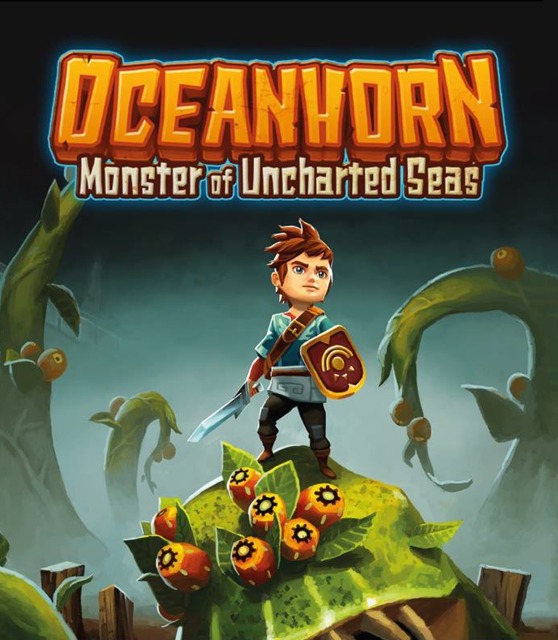
Cornfox & Brothers's Oceanhorn: Monster of the Uncharted Seas is another Indie game I've been playing recently and is, like Super Chibi Knight, focused on one particular Zelda though cribs from several others. In this case, Oceanhorn borrows from the GameCube Zelda entry The Legend of Zelda: The Wind Waker, presenting a bright and colorful world across an archipelago of distinctive islands, complete with a facsimile of Wind Waker's oft-maligned sailing sequences.
The protagonist of Oceanhorn has set off to find his missing father, following clues that leads him to the uncharted seas of the title. It's here he learns about his family's connection to the ancient mechanical demon of the seas, Oceanhorn, and his eventual role in its destruction. The game has the player sailing from island to island, exploring dungeons and completing puzzles and using the items he finds to explore new locations elsewhere. In addition, the player needs to learn about new islands before they can visit them: some are withheld until the plot requires that the player visit them, such as story-critical dungeons, while others are presented as bonus locations with a handful of treasures that the player will only discover after finding a message in a bottle, or through some other incidental means. The game occasionally feels like an older Zelda ersatz, in part because its world operates on what appears to be an isometric grid, even though the game itself is fully 3D and offers full 360 degree movement. There are hidden treasures and breakable walls everywhere, and there's backtracking aplenty for the truly completionist.
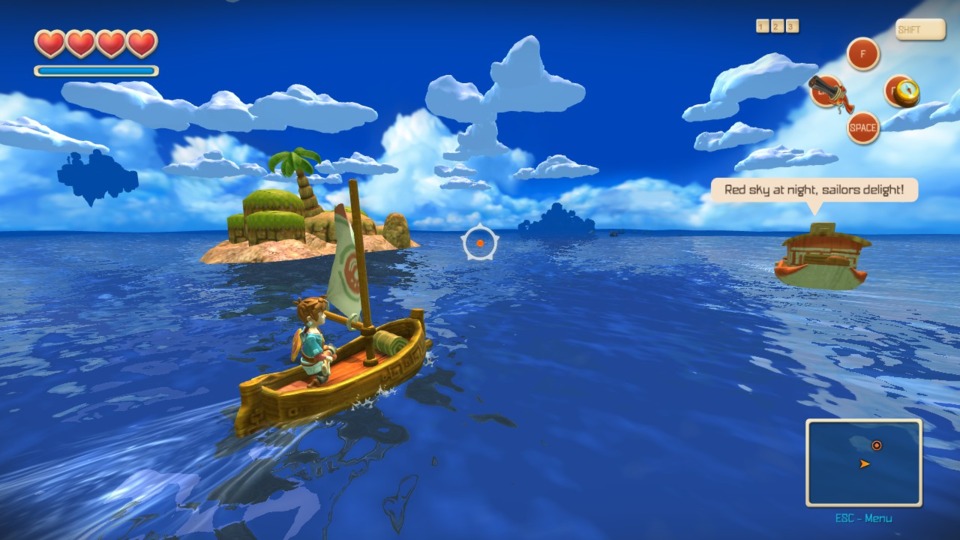
In addition, the game also borrows from other Zelda games: the three elemental emblems the player must find look suspiciously like those found in A Link to the Past and Ocarina of Time, each one associated to a creator goddess, and the player gains in experience by completing optional objectives and via treasure chests and monster elimination, similar to Zelda II. In essence, the developers of Oceanhorn are selectively borrowing the elements they liked most from specific Zelda games, or are perhaps taking from multiple sources in order to make the game's influences more varied than simply Wind Waker alone.
(Either way, I've enjoyed what I've played of it so far and I hope to complete it before tomorrow's Sunday Summaries update so I can deliver a full critique.)
Anodyne

My last example, Analgesic Productions's Anodyne, is a game I feel is influenced by the tone of certain Zelda games, specifically the weirder ones: Majora's Mask and Link's Awakening. The game follows the standard top-down Zelda blueprint for its dungeons and puzzles, but the whole atmosphere and fractured story of the game is a little more eccentric and layered than its familiar presentation would first suggest. It takes on a dream-like quality, where certain abstract elements of the plot are deliberately vague and difficult to comprehend and the game often dabbles in nightmarish imagery or concepts.
For the sake of spoilers I'm thankfully long past the point of remembering what actually happens in the game, such is my memory, but a few elements stuck with me: how bosses would often insult the player character as if they were disapproving parents or peers, suggesting they were manifestations of people the main character knows or knew in his waking life, and that the game would often take tonal 180s as you passed through one region to emerge somewhere completely different, like the gooey insides of an enormous creature.
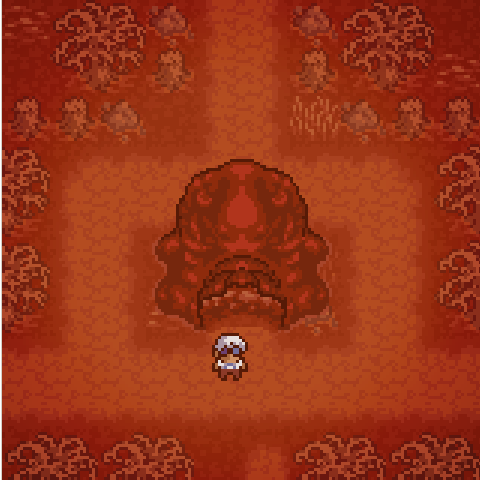
The gameplay, though, was largely reliant on an item that the player would keep finding new uses for: a broom, which could be used as a club to defeat enemies but also to move piles of dust around, that in turn would be used to press switches and perform other duties. The claustrophobic top-down perspective definitely had a portable Zelda feel - hence the Link's Awakening comparison, though that link (as it were) is also strengthened by how both games heavily factor dreams and dream-logic in their plots - but Anodyne was clearly aiming to tell a metaphysical and psychologically-disturbing tale in a familiar format: I equated it at the time to Shadow Mitsuo Kubo's dungeon in Persona 4, where the Investigation Team passes through a nostalgic old-school Japanese RPG dubbed "VoidQuest" that actually represented the social awkwardness and psychopathic emptiness of its creator.
That's all the examples I have for right now, but I hope to continue seeing - or catch up on - Indie games that have distilled aspects of the Zelda experience in one fashion or another, in lieu of the unenviable prospect of trying to create an entirely novel Zelda game from scratch on a shoestring budget. I'd be happy to hear any examples people have of similar Indie takes on the Hero of Time in the comments below, and I'm going to keep looking at how the Indie market cleverly banks on nostalgia by picking up on genres and ideas that the bigger game industry has long since abandoned in spite of an existing market that still lives to see more of that kind of experience: the four-directional dungeon-crawlers that Legend of Grimrock and Might & Magic X Legacy honors, as an example of one I've already explored in those games' respectivereviews.
See you next time, unless I've met with a terrible fate.
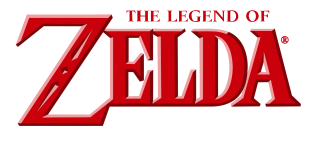
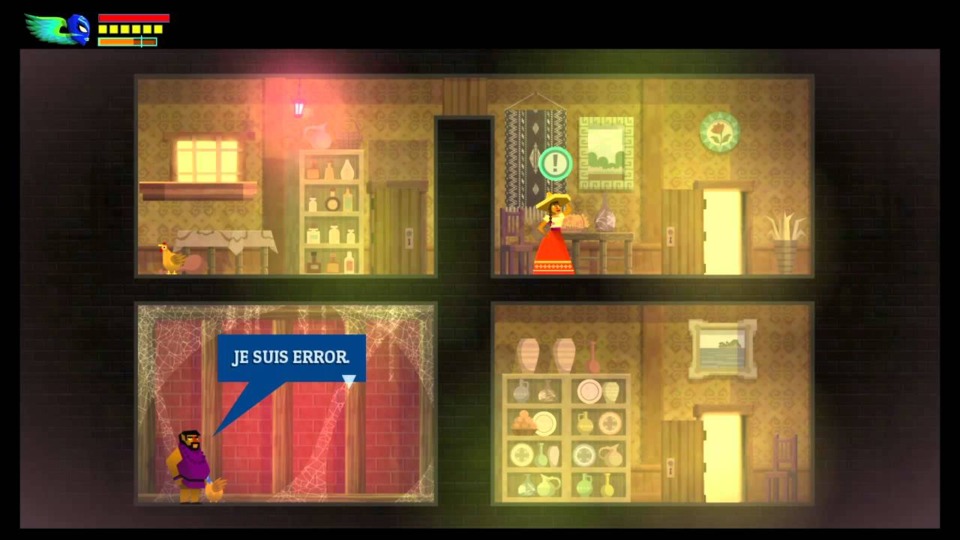
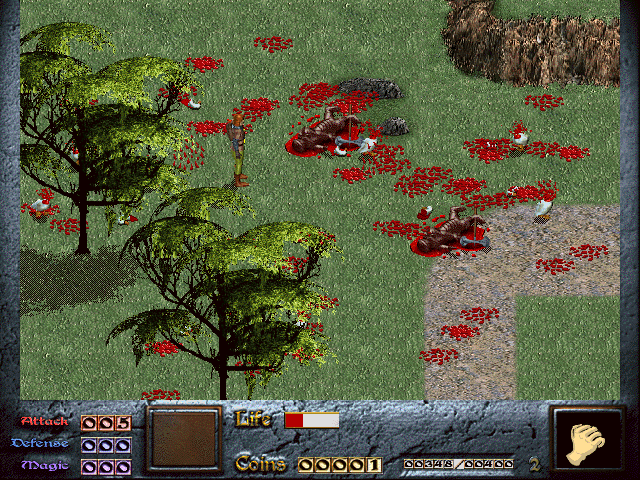
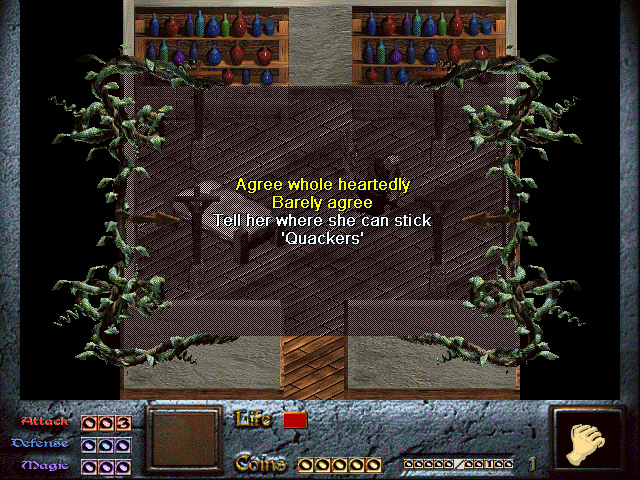
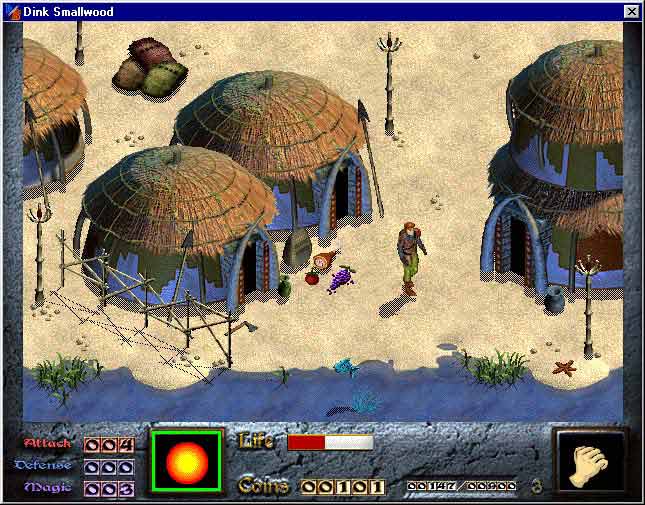
Log in to comment